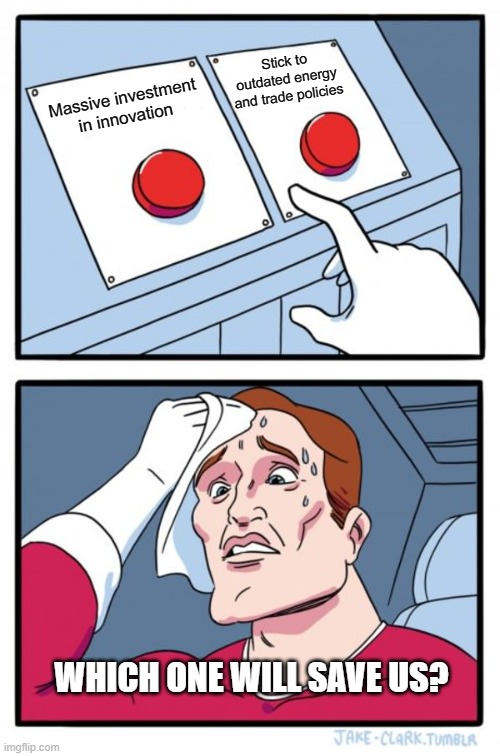There’s no denying it – Europe has a tough challenge ahead. After spending years trying to maintain its place in a rapidly changing world, it seems the European Union (EU) might be falling behind. Mario Draghi, former president of the European Central Bank, was called in to write a landmark report on EU competitiveness, and, well, it doesn’t look pretty. As someone who follows global economics closely, I think this report could spark major changes. Let me break it down for you.
1. Why Money Matters More Than Ever
The first thing Draghi points out in his report is that Europe needs a massive injection of money – and fast. We’re talking about financing things like decarbonization, digital innovation, and other key infrastructure projects. This isn’t small change. The estimate just to cover public funding gaps is a staggering €900 billion by 2031. That’s a number I can’t even wrap my head around.
Private investment needs to play a bigger role here, but that brings its own challenges. The EU is deeply divided on how public money should be used, and, naturally, there’s plenty of political disagreement. Yet without clear funding, Europe’s chances of staying competitive could shrink dramatically.
2. The Innovation Gap Is Alarming
This one really stood out to me. European companies are investing significantly less in innovation compared to their American counterparts. Draghi’s report highlights the shocking €700 billion annual investment gap between the EU and the U.S., especially in sectors like tech and telecommunications. It’s a huge problem, and one that directly impacts productivity.
What makes this even more concerning is the fact that European firms rely heavily on foreign investors. If the EU wants to stay in the game, it needs to attract more investment and develop a solid tech strategy. Without that, we could see more companies struggling to bring innovative products to market. Europe can’t afford to lose this battle.
3. The Energy Crisis: Still a Puzzle
Energy is another area where Europe is lagging. Despite recent clean tech rules, the EU is missing a clear energy strategy. And that’s a huge deal, especially as the global shift towards greener technologies speeds up. Draghi’s report calls for not only boosting production but also increasing demand for clean tech products that offer added value.
But it’s not just about clean energy production. Europe’s energy-intensive industries are stuck with outdated pricing mechanisms tied to fossil fuels. Unless that changes, the EU will find it hard to compete with countries that have already streamlined their energy policies.
4. Changing the Rules of Trade and Mergers
One of the boldest parts of the report is Draghi’s suggestion that the EU needs to rethink its approach to competition rules and trade. He hints at using tariffs to confront the protectionist strategies of the U.S. and China, but that idea is likely to stir up major controversy.
Draghi also wants to cut Europe’s dependencies by securing better trade deals, especially when it comes to raw materials. This is something the EU desperately needs if it’s going to hold its own in a world that’s becoming less reliant on free trade.
5. Keeping European Values in Focus
Despite all the talk about competition and economics, Draghi doesn’t forget to emphasize the importance of European values. His report touches on the concept of the “European social model” – a system that focuses on social equality, equity, and quality public services. In a world driven by profits, it’s nice to see someone still thinking about people.
He also brings up the EU’s lack of focus on its own market. Most procurement over the past two years has been from outside the EU. That’s a staggering statistic, and Draghi proposes some changes to introduce “Buy European” clauses in procurement rules. It’s a step in the right direction, but will it be enough to convince those skeptical of the report? Only time will tell.
Read the article: “The Dramatic Collapse of China’s Real Estate Bubble”


Leave a Reply
You must be logged in to post a comment.